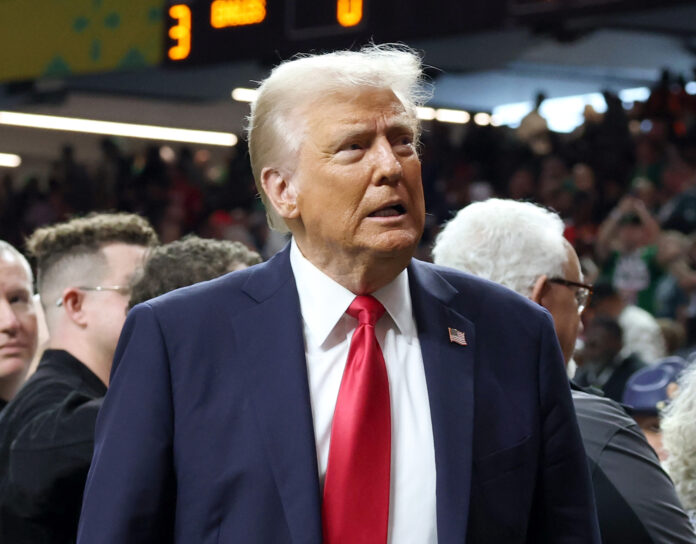Hundreds of white South Africans gathered outside the U.S. Embassy in Pretoria on Saturday to express support for President Donald Trump and his claims that they are victims of racial discrimination by their own government. Many protesters held signs reading “Thank God for President Trump” and condemned what they believe to be racist policies targeting the white minority.
The demonstration came after Trump signed an executive order cutting aid to South Africa, citing concerns over a new law that allows the government to expropriate private land. The South African government has dismissed Trump’s claims as misinformation, arguing that the law is not racially motivated but aims to correct historical injustices.
Trump’s executive order sparks controversy

The order described South Africa’s Afrikaners, who are descendants of Dutch settlers, as “racially disfavored landowners” and alleged that they were being unfairly targeted. Trump also announced a plan to grant refugee status to Afrikaners in the U.S., a move that has further strained diplomatic relations between the two countries.
South African President Cyril Ramaphosa pushed back against Trump’s accusations in a speech to Parliament, stating that forced removals of landowners would not be allowed under the new law. He emphasized that the policy is meant to address the disproportionate land ownership in the country, where whites, who make up just 7% of the population, still own the majority of farmland.
Protesters denounce government policies
Many of the demonstrators not only protested the land expropriation law but also criticized affirmative action policies known as Black Economic Empowerment (BEE), which were implemented to increase economic opportunities for Black South Africans. Some white South Africans argue that these policies have marginalized them in employment and business opportunities.
Elon Musk, a vocal critic of the South African government, has also weighed in on the issue. The billionaire, who was raised in South Africa, has accused the government of being anti-white. His company, Starlink, recently failed to secure an operating license in South Africa because it did not meet the country’s affirmative action requirements.
South Africa’s complex racial landscape

Despite ongoing racial tensions, South Africa has made strides in reconciling its diverse population since the end of apartheid in 1994. The current government is a coalition of both Black-led and white-led political parties working together.
However, Trump’s intervention has added a new layer of complexity to the debate over land reform and racial policies in South Africa. While some white South Africans view Trump as a champion of their cause, critics argue that his involvement is based on misinformation and could further inflame racial divisions in the country.




